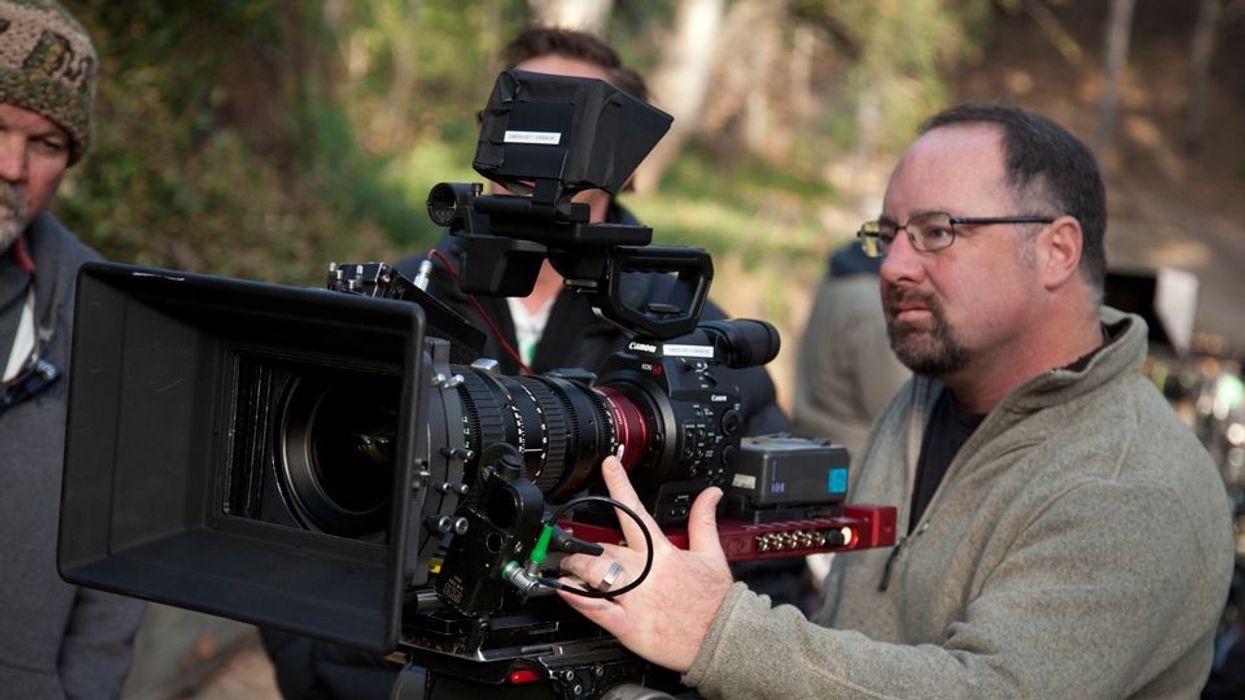Jeff Cronenweth on His Cinematography Principles and Working Style
Want to shoot like a pro? Talk to Jeff Cronenweth...

Creating film and television is one of the most visceral artistic endeavors. You use your hands and tools and your mind to craft something from nothing. But you don't have to listen to me wax and wane about it, you can listen to Academy Award nominee, Jeff Cronenweth.
We sat down with Cronenweth and made a few short videos about some of the principles of cinematography. Jeff is well known for his work as the director of photography on the David Fincher films Fight Club, The Social Network, The Girl with the Dragon Tattoo, and Gone Girl, among other, non-Fincher films.
First up, let's look at his words for those aspiring to get into the field of cinematography. How should beginning cinematographers learn the business? And how can a career be built?
After you've dipped your toes in the advice, we want to work on building your career. Lots of people come to Hollywood and work on one project, but few work out longevity. A lot of that has to do with success, but other parts of a long career have to do with how well you work with crews. Not just crew that are familiar to you, but crews you maybe never have met before you start shooting.
Cronenweth has lots of advice for those scenarios.
Now that you know how to work with a diverse array of crews, it's time to talk about Cronenweth's work with David Fincher. When you're a DP, working well with a director is a key to ongoing success. If you can, formulate a shorthand with that person you can work with them from project to project. Knowing how a director thinks can help you clearly identify the look and feel of every scene in front of you.
So how does Cronenweth do this with Fincher? Check out the video.
All right, we got the overview of working with Fincher, but let's dial into one specific film... the look and feel of Fight Club. This movie occurred early on in Fincher and Cronenweth's career. It was an adaptation and had a very specific message Fincher wanted to impart.
So what did cinematography do in Fight Club to enhance this message? And how did Cronenweth use this opportunity to bond with Fincher and develop a friendship?
Finally, many of the lessons Cronenweth has guided us through have to do with the lessons he learned collaborating with Fincher. In our last video, Cronenweth takes us through Fincher's philosophy and how that corresponded with working together. As a cinematographer, he talks about his place within this philosophy and where their partnership will go in the future.
Now that you have all the information from Cronenweth, it's time to go out and apply it to your own career. Hopefully, the tidbits you picked up today will allow you to achieve a modicum of the success Cronenweth has found across the course of his career.
For the entire Jeff Cronenweth interview, plus more great in-depth interviews with DPs, Directors, Producers, and filmmakers of all kinds subscribe to the No Film School podcast.
Check out all episodes of The No FIlm School Podcast.











